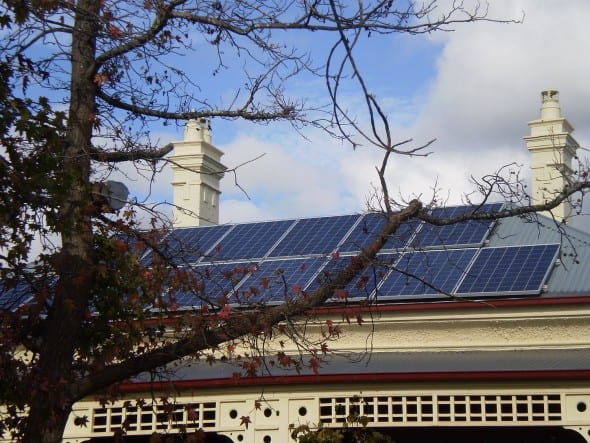South Australia’s solar feed-in tariff of 6.8c/kWh look set to be scrapped, after the state’s Essential Services Commission (ESCOSA) revealed it was working on a draft proposal to remove the minimum price retailers are expected to pay for rooftop PV exports in the state, starting January 2017.

In a media release on its website, ESCOSA said its proposal to remove the minimum FiT was “based on the view that the market structures that facilitate electricity retail competition are sound and that continued regulation of the minimum R-FiT may inhibit competition in the future, to the detriment of consumers.”
The Commission also said that its proposal to stop setting a minimum R-FiT did not necessarily mean retailers would no longer pay it.
“Evidence from other jurisdictions strongly suggests that customers will continue to receive an R-FiT set by retailers, reflecting the long term benefit that retailers receive from energy exported by solar customers,” it said.
Indeed, South Australia is one of the few states in Australia that still sets a baseline solar tariff. In most other states there is no mandatory tariff, just a recommended price guide that retailers are under no obligation to follow.
And, as we have noted here, that has not worked out well for most solar households, which in some states are barely catching up with the big increases being pocketed by the utilities with large amounts of coal and gas power.
Households in Victoria are getting the worst deal, being paid only 5c/kWh by the major retailers, under guidance from a formula put together by the Essential Services Commission.
In South Australia, the ESCOSA decision comes at a time where consumer confidence in the function of the electricity market is at an all-time low – an unfortunate irony Solar Citizens is keen to highlight.
“When electricity prices in South Australia have only just last month risen by 10 per cent, it’s incredible that the regulator now thinks a fair price for solar households is effectively zero cents,” said Solar Citizens national director Claire O’Rourke in an statement on Thursday.
“The commission said their decision was based on its view that the market structures that facilitate electricity retail competition are ‘sound’ and continued regulation of the Feed in Tariff might ‘inhibit competition’ in the future.”
“Either the ESCOSA has a real lack of understanding in the South Australian electricity market or an incredibly short memory. It is the lack of competition in the South Australian electricity market that has been widely identified as a major reason behind recent wholesale price spikes,” she said.
“Tens of thousands of solar owners in South Australia will now be offered nothing for their excess solar sent to the grid and that is a loss for all electricity consumers in South Australia.
“The decision …ignores the huge value of rooftop solar in South Australia that has helped provide reliable, cheaper electricity and reduce the price of electricity for all South Australians.
“If we want to encourage a smarter way of generating cheaper energy, we should be valuing solar electricity. Solar power, especially when coupled with battery storage, can provide the solution for higher electricity prices.”






